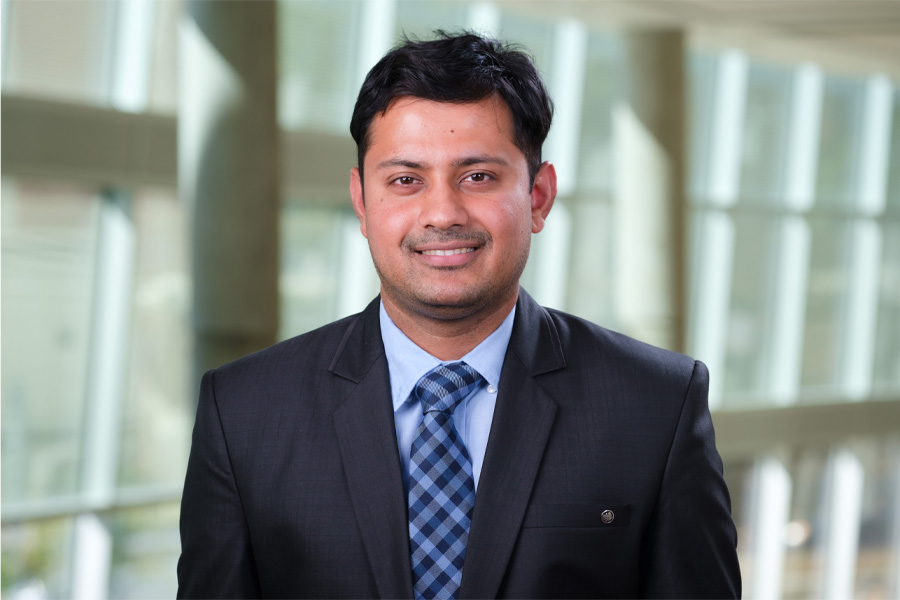Abhijit Aithal, PhD

Abhijit Aithal, PhD, is an assistant professor in the Department of Biochemistry and Molecular Biology.
His lab has a long-standing interest in understanding how the immune system operates, especially in the context of pathologies such as pancreatic cancer. By focusing on mucins that are high molecular weight glycoproteins expressed on pancreatic cancer cells and one of the prime targets for the host immune response to pancreatic cancer, the Aithal lab aims to identify how they alter the host immune response either to suppress or enhance the growth of pancreatic cancer.
The lab has in hand several mucin-derived peptides that Dr. Aithal's team is evaluating for their ability to elicit immune response form host immune cells. Studying such mucin-targeted natural immune response has wide range implications for developing biomarkers for predicting early disease and for developing therapeutic vaccines. The team's target is mucin, but its developing and improving theories apply equally to other targets and diseases.
Another area of interest is therapeutic monoclonal antibodies. Therapeutic antibodies have become a major player in the field of cancer therapeutics. The global monoclonal antibody therapy market is projected to reach $329.6 billion by 2030. Monoclonal antibodies raised to cancer-associated proteins have demonstrated impressive therapeutic clinical benefits for many cancers, such as breast, colorectal and lung cancers. Even though these treatments are effective, invariably the cancer comes back and becomes resistant to these treatments. Understanding the various pathways by which antibodies work is crucial in addressing this problem.
Dr. Aithal's present research work focuses mainly on mucins, such as MUC4, MUC5AC and MUC16, all of which are aberrantly overexpressed in cancer and play important roles in its biology. His team intends to delineate the various pathways by which anti-mucin antibodies stop the growth of cancers. Such work will significantly improve the design of therapeutic antibodies so that they are safe, more effective and work against resistant cancers. The results have implications not only for therapeutic applications but also for further understanding the role of mucins in cancer biology.
Dr. Aithal's lab also is using anti-mucin antibodies as carriers of cytotoxic drugs or fluorescence dyes to either selectively kill them or to image them for effective surgical removal. Preliminary proof of concept studies are now being undertaken in mouse models.
- BSc: Biotechnology, Kasturba Medical College, Manipal, India.
- MSc: Medical biotechnology, Manipal Life Sciences Center, Manipal, India.
- PhD: Life science, Institute of Microbial Technology, Chandigarh, India.
- Cancer immunotherapy.
- Mucin biology.
College of Medicine
University of Nebraska Medical Center
985870 Nebraska Medical Center
Omaha, NE 68198-5870